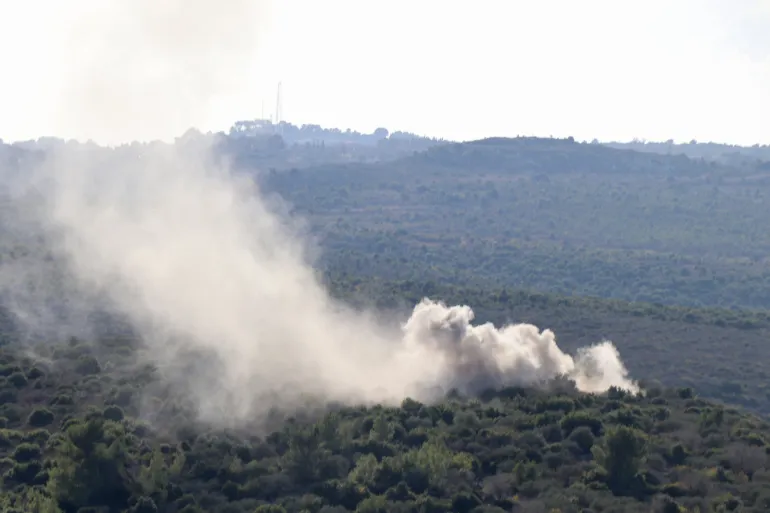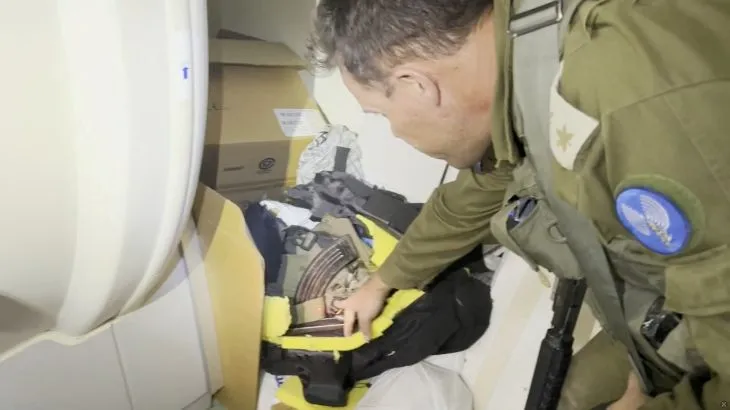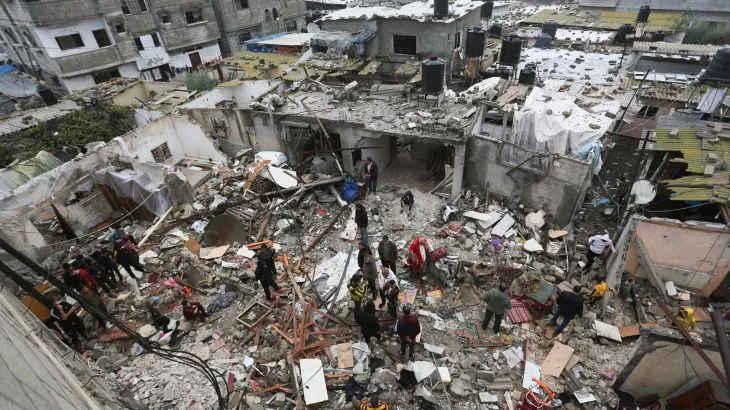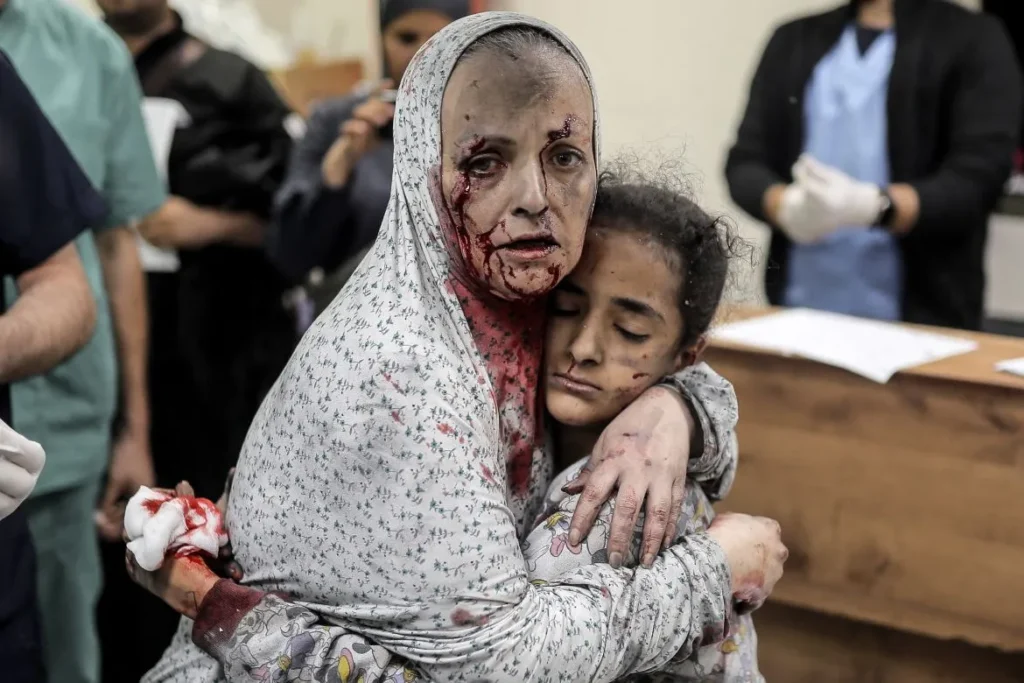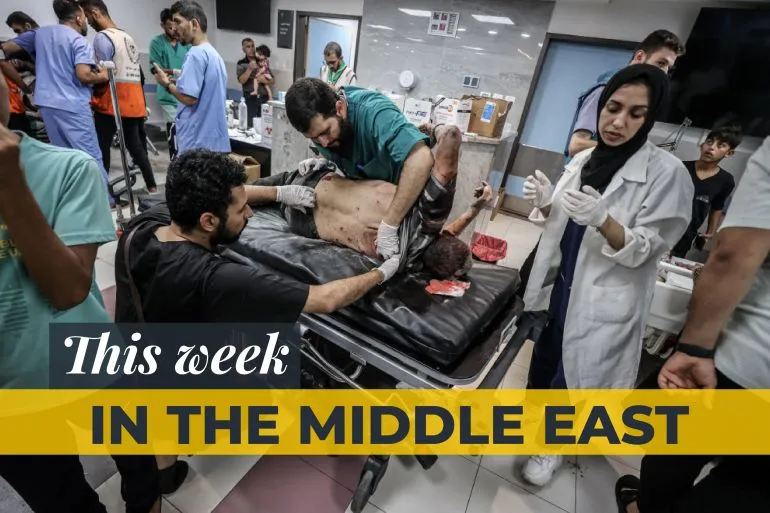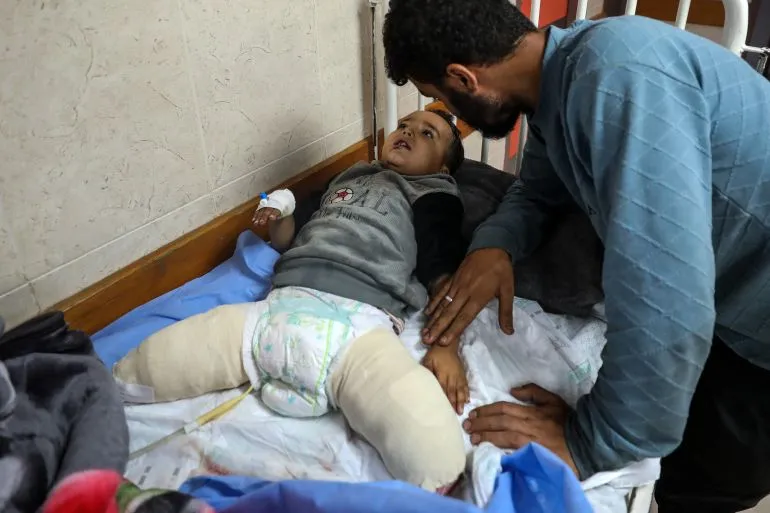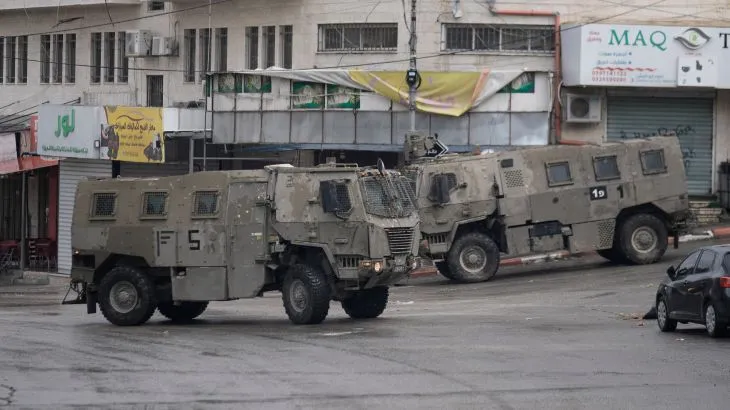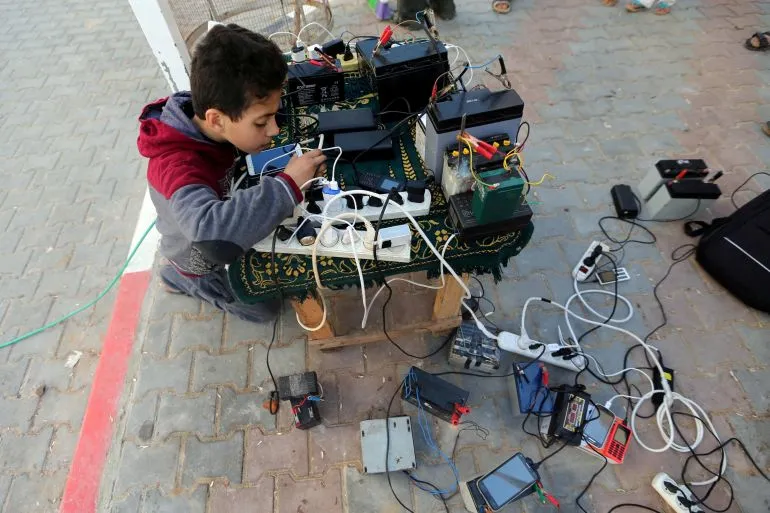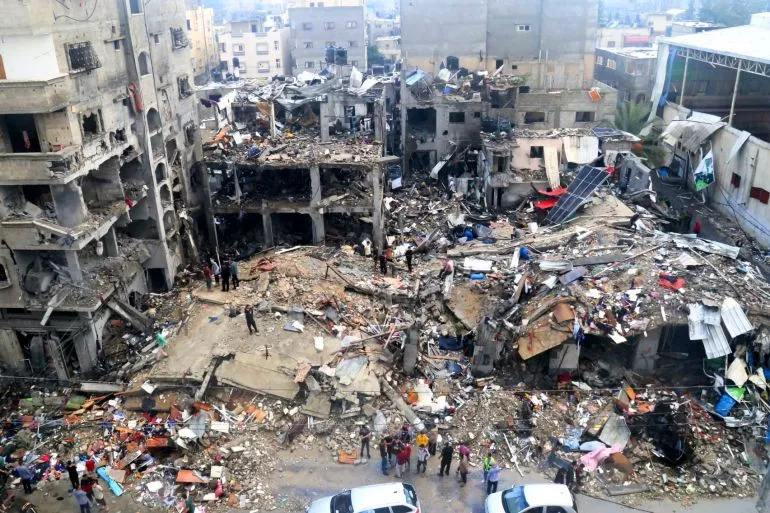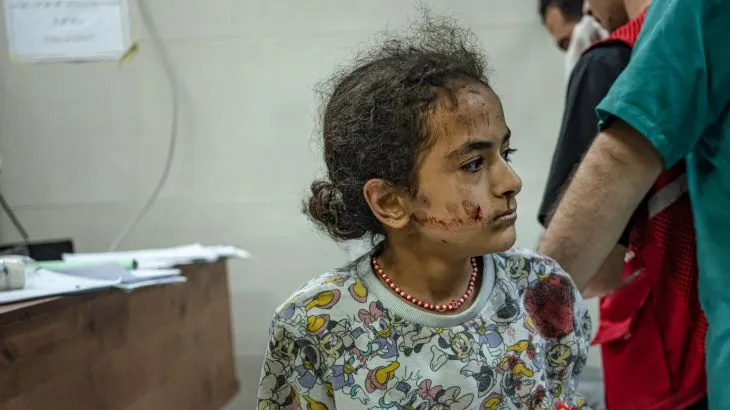Israeli strike kills three journalists near Lebanon border
Al Mayadeen TV said an Israeli attack ‘deliberately’ targeted its correspondent Farah Omar and cameraman Rabih Me’mari. Published On 21 Nov 202321 Nov 2023 An Israeli bombardment of southern Lebanon has killed three journalists, according to Lebanese media, as hostilities grow along Israel’s northern border. Lebanon’s state-run National News Agency reported on Tuesday that an “enemy bombing” killed three people in the Tayr Harfa area, about 1.6km (1 mile) from the Israeli frontier. KEEP READING list of 4 itemslist 1 of 4 Reuters, Al Jazeera journalists ‘targeted’ in Lebanon strike: Press group list 2 of 4 How deadly is the Israel-Gaza war for journalists? list 3 of 4 Journalists allegedly targeted by Israeli strike in south Lebanon list 4 of 4 Two journalists killed by Israeli bombing on Bureij refugee camp end of list Lebanese channel Al Mayadeen TV said two of its staff were among the victims. The third person killed was said to be a local journalist and “contributor” to the channel. “Correspondent Farah Omar and cameraman Rabih Me’mari were killed by an Israeli attack,” Al Mayadeen said in a statement. “It was a direct attack, it was not by chance,” Al Mayadeen director Ghassan bin Jiddo said, noting it came after an Israeli government decision this month to block access to the channel’s website. “Another attack has targeted journalists in southern Lebanon, killing a reporter and a cameraman who worked for the pan-Arabic channel Al Mayadeen … A third person, who was with them, was also killed,” said Al Jazeera’s Zeina Khodr, reporting from southern Lebanon. “The feeling here is that the Israeli army wants to silence the media and punish journalists,” our correspondent said. https://platform.twitter.com/embed/Tweet.html?dnt=true&embedId=twitter-widget-0&features=eyJ0ZndfdGltZWxpbmVfbGlzdCI6eyJidWNrZXQiOltdLCJ2ZXJzaW9uIjpudWxsfSwidGZ3X2ZvbGxvd2VyX2NvdW50X3N1bnNldCI6eyJidWNrZXQiOnRydWUsInZlcnNpb24iOm51bGx9LCJ0ZndfdHdlZXRfZWRpdF9iYWNrZW5kIjp7ImJ1Y2tldCI6Im9uIiwidmVyc2lvbiI6bnVsbH0sInRmd19yZWZzcmNfc2Vzc2lvbiI6eyJidWNrZXQiOiJvbiIsInZlcnNpb24iOm51bGx9LCJ0ZndfZm9zbnJfc29mdF9pbnRlcnZlbnRpb25zX2VuYWJsZWQiOnsiYnVja2V0Ijoib24iLCJ2ZXJzaW9uIjpudWxsfSwidGZ3X21peGVkX21lZGlhXzE1ODk3Ijp7ImJ1Y2tldCI6InRyZWF0bWVudCIsInZlcnNpb24iOm51bGx9LCJ0ZndfZXhwZXJpbWVudHNfY29va2llX2V4cGlyYXRpb24iOnsiYnVja2V0IjoxMjA5NjAwLCJ2ZXJzaW9uIjpudWxsfSwidGZ3X3Nob3dfYmlyZHdhdGNoX3Bpdm90c19lbmFibGVkIjp7ImJ1Y2tldCI6Im9uIiwidmVyc2lvbiI6bnVsbH0sInRmd19kdXBsaWNhdGVfc2NyaWJlc190b19zZXR0aW5ncyI6eyJidWNrZXQiOiJvbiIsInZlcnNpb24iOm51bGx9LCJ0ZndfdXNlX3Byb2ZpbGVfaW1hZ2Vfc2hhcGVfZW5hYmxlZCI6eyJidWNrZXQiOiJvbiIsInZlcnNpb24iOm51bGx9LCJ0ZndfdmlkZW9faGxzX2R5bmFtaWNfbWFuaWZlc3RzXzE1MDgyIjp7ImJ1Y2tldCI6InRydWVfYml0cmF0ZSIsInZlcnNpb24iOm51bGx9LCJ0ZndfbGVnYWN5X3RpbWVsaW5lX3N1bnNldCI6eyJidWNrZXQiOnRydWUsInZlcnNpb24iOm51bGx9LCJ0ZndfdHdlZXRfZWRpdF9mcm9udGVuZCI6eyJidWNrZXQiOiJvbiIsInZlcnNpb24iOm51bGx9fQ%3D%3D&frame=false&hideCard=false&hideThread=false&id=1726907050960289848&lang=en&origin=https%3A%2F%2Fwww.aljazeera.com%2Fnews%2F2023%2F11%2F21%2Fisraeli-strike-kills-three-journalists-near-lebanon-border&sessionId=0d43fc0969bb5e988ca573d54b29b1267f436eaa&theme=light&widgetsVersion=01917f4d1d4cb%3A1696883169554&width=550px Israel blacklisted Al Mayadeen TV last week, accusing it of “wartime efforts to harm [Israel’s] security interests and to serve the enemy’s goals”. Israel’s Minister of Communications Shlomo Karhi said on October 13 he had begun work to block Al Mayadeen’s websites and programming and shut down its local offices. “The Lebanese information minister has asked the army to open an investigation into [the attack on Tuesday],” Khodr said, adding that this was the third attack against journalists in southern Lebanon since October 13. The Israeli military said it was “looking into the details” of the incident, the AFP news agency reported. The latest killings add to at least 50 reporters and media workers who have been killed amid Israel’s 46-day war in Gaza, according to press freedoms group, the Committee to Protect Journalists. The vast majority of the killed journalists are Palestinians in the besieged Gaza Strip. Since October 7, when Israel waged its war in Gaza following Hamas’s attack on Israeli territory, there have been repeated confrontations between the Israeli army and Hezbollah on the Israel-Lebanon border. So far, the fighting has killed 70 Hezbollah fighters, 13 Lebanese civilians, seven Israeli troops and three Israeli civilians, in what is the worst escalation since 2006.
Israeli strike kills three journalists near Lebanon border Read More »

